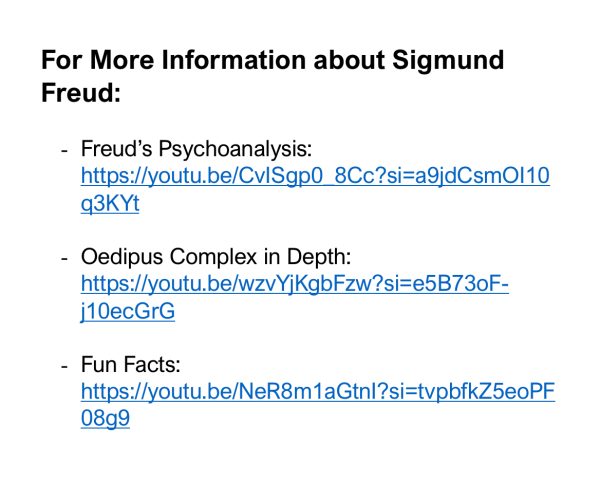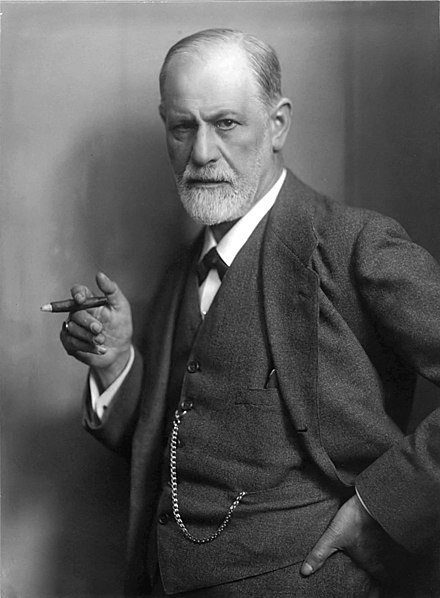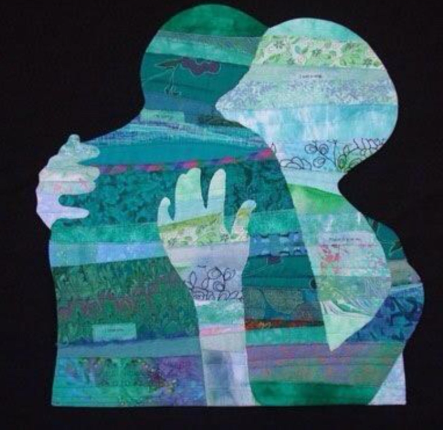In the time we’ve known about psychology and its study of the human mind, few names resonate as greatly with it as the name of Sigmund Freud. Known as the “father of modern psychology” with his works in the late 19th and early 20th century, Freud laid the groundwork for psychology as we know and are taught in classrooms today.
How he is taught at Miami High
He argued that human behavior was largely determined by unconscious motives that stem off your childhood experiences, specifically with things related to loss, love, sexuality, death, and complex relationships with parental figures.
But despite his brilliant contributions to psychology, some people might not agree with the concepts he’s so widely known and praised for.
Ms. Delgado, a psychology teacher, believes his theories opened a lot of conversation in spite of some being disproven. She states, “It was a good start.” However, people still disagree that these were all but a “good start”, going as far as to deem them peculiar and eccentric.
Mr. Norori, an Advanced Placement Psychology teacher, states how Freud is considered the father of modern psychology for a reason: due to him introducing ideas that are still studied and talked about today. But he also states, “There is no question that his methods were controversial and questionable.”
Junior Fabio Castellon, who took a psychology class last year, states, “Overall, most of his contributions got psychology into the limelight of the public eye, but personally to me, some of his theories are a little odd, even if everything he says has some truth behind it.”
While his theories may have been considered odd or controversial in their time, there’s no denying the enduring impact they’ve had on the field. His legacy is a reminder that innovation often arises from unconventional thinking, explaining why some people found him strange for his claims, and that even the oddest of ideas can yield remarkable benefits for our understanding of the complex tapestry of the human mind.
The Oedipus Complex and its Lasting Effects
The Oedipus Complex is one of Freud’s most controversial theories, but many new psychology students don’t exactly know the true story of Oedipus and why this theory matters so much to modern psychology.
Freud’s Oedipus and Electra complexes dive into the intricate dynamics of familial relationships and their influence on people. In hindsight, the story of Oedipus and Electra are equivalents to a theory of developing emotions of arousal as a young child by an unconscious sexual desire for a parent of the opposite gender, often seen as competing with your mother for the love of your father or vice versa.
Junior Elizabeth Murillo, a past Advanced Placement psychology student, states, “People are still falling into his way of thinking, and they don’t even know it was him who created that theory.” She believes the modern internet, a lot of which do not know who Sigmund Freud is, continuously post onto public platforms videos and text-posts further proving Sigmund Freud’s Oedipus Complex, such as posts involving the topic of sons finding younger photos of their mothers to be attractive.
Both Mr. Norori and Ms. Delgado find this theory on the Oedipus Complex to not be as influential as modern psychology students or psychologists themselves make it out to be, putting the question back up into the air of whether such a complex really impacts the understanding of human development and relationships or not.
Mr. Norori states, “I think Sigmund Freud’s Oedipus Complex had a lasting impression and impact on his view of human relationships and development, but I would not say it impacted the overall view of relationships and development for all humans.”
Ms. Delgado agrees, adding, “I think it touches the tip of the iceberg on relationships, but the deeper you get, it gets so convoluted with laughter that people uninterested in psychology would not take it seriously.”
Freud’s Concepts: Did They Help or Worsen Therapy?
Freud’s complex theories, particularly those surrounding the concepts of psychoanalysis, defense mechanisms, and unconscious desires, have undeniably shaped psychotherapy over the last few decades. However, the extent to which these ideas have either aided or hindered therapy remains a subject of ongoing debate within the field of psychology.
Senior Mariana Cardenza states, “I think when it comes to introspection, some of these definitions can be put in a simple manner so you have to dig deeper.” She believes Freud’s theories worsened some aspects of therapy regarding being diagnosed with mental illnesses that could be rooted back to things such as his Madonna Complex, related to borderline personality disorder (BPD), and therefore hinder their importance in such practices.
Contrarily, Sofia Herrera, a past psychology student, states, “I feel as if Freud’s theories help therapy more because it gives the therapist a step up on whether or not someone is a danger or a future threat, or whether they are experiencing trauma.” She believes that by introducing these mechanisms, Freud’s theories are able to aid therapy in light of understanding certain aspects of people and what they are going through, likely determining whether or not they are in safe mental spaces.














Sandra Rodriguez • Oct 20, 2023 at 11:10 am
Very interesting
Natalie Morales • Oct 12, 2023 at 2:14 pm Miami High News Pick
Very interesting and so well written.